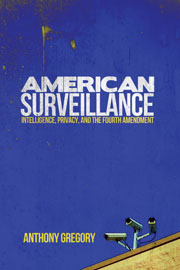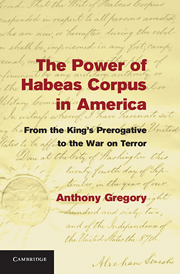The latest ruling of the Fourth Circuit Court of Appeals in the Jose Padilla case is a threat to the freedom of all Americans.
On September 9, 2005, the Court upheld the federal government’s authority to detain an American citizen arrested within the United States indefinitely without charging him with a crime. All the president has to do is call a citizen an “enemy combatant,” and the person’s due process rights disappear.
Judge J. Michael Luttig wrote the Court’s unanimous decision, which contends that a post-9/11 Congressional resolution gave the president “the power to detain identified and committed enemies such as Padilla, who associated with al Qaeda and the Taliban regime, who took up arms against this nation in its war against these enemies, and who entered the United States for the avowed purpose of further prosecuting that war by attacking American citizens and targets on our own soil.”
But how do the judges even know that Padilla is guilty? It appears that in today’s America, the federal government can imprison an American citizen forever by mere decree.
Terrorism is a monstrous crime, and those guilty of it hardly merit our sympathy. But without due process, it is impossible to protect the innocent. The whole reason we have due process is that the government cannot be trusted with unchecked absolute power over life and liberty.
False imprisonment is a fundamental attack on justice and means that, in the case of an actual crime, the guilty have yet to be caught. Over hundreds of years, Western Civilization has developed procedural strictures on power—from Habeas Corpus and Jury Nullification to the right of the accused to have an attorney and confront his accuser—most of which are enshrined in the American Constitution and its Bill of Rights.
Some argue that, in times of war, all “enemy combatants” cannot possibly be given a trial. However, Padilla has also not been given POW status, as the conventions of war dictate. Nor has war even been constitutionally declared: the congressional resolution after 9/11 was not a declaration of war.
U.S. Judge Michael B. Mukasey decided in 2002 that Padilla must have access to an attorney, and so he assigned him one. The attorney requested that the judge vacate the warrant against Padilla, since he had not been charged with a crime. At that point, the Bush administration declared Padilla an “enemy combatant” and took him to a Naval Brig in South Carolina, where he now remains without access to a lawyer, the press, or the outside world.
At the time, Padilla had been accused of plotting with al Qaeda to explode a dirty bomb in the United States. Eventually the government stopped accusing him of that, and instead claimed he wanted to blow up apartment buildings with natural gas. One might safely suspect that, with the story shifting so much, the evidence might not withstand the scrutiny and cross examination of a jury trial.
In February a Federal Court in South Carolina ruled that the Bush administration could not legally hold Padilla as an “enemy combatant” without charging him with a crime. By overruling that sensible decision, the Fourth Circuit has overruled a basic tenet of American constitutional liberty—the rights of the accused.
The federal government has acted more-or-less within the confines of due process in other recent terrorism cases. The Justice Department has criminally indicted such terror suspects as Timothy McVeigh, “twentieth hijacker” Zacarias Moussaoui, and, just this August, four men accused of conspiring to attack National Guard buildings, Los Angeles synagogues and the Israeli Consulate.
Yet with the Padilla case we have seen the Bill of Rights and due process totally cast aside. If the government has evidence of Padilla’s wrongdoing, it should bring him to trial. If it does not, it should let him go. The concept that the mere utterance of “enemy combatant” can keep a man indefinitely deprived of a lawyer, a trial, or even a Habeas Corpus hearing flies in the face of hundreds of years of procedural precedent and is more fitting of a Communist tyranny than a free country.









